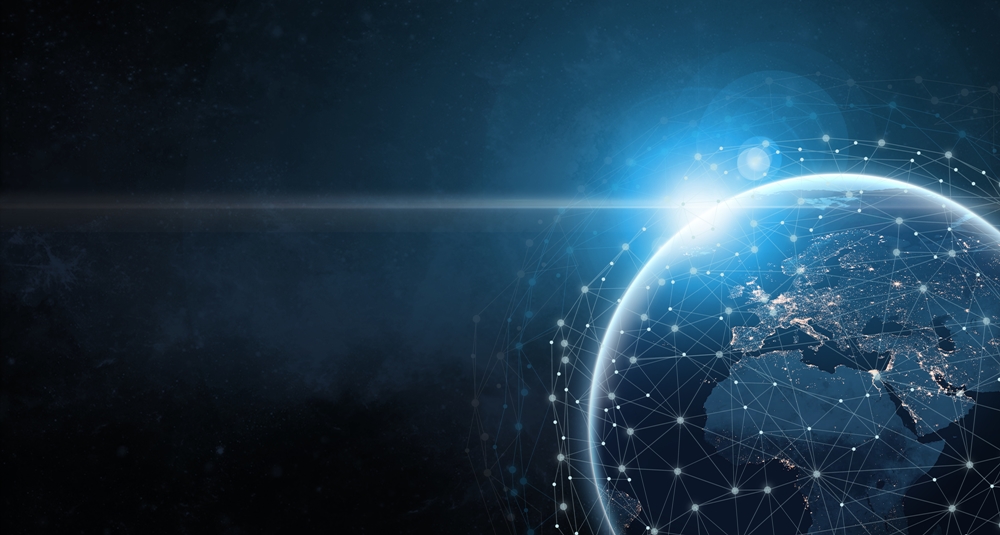
From bins and vacuum cleaners to agricultural watering systems and industrial scale tools, everyday items from across the world are being connected to the Internet of Things.
The potential this has is huge, with experts citing it as the, ‘fourth industrial revolution’. The importance of this technology is far reaching and will impact most areas of day to day life. This article will explain 5 ways the IoT will help us tackle global problems. But before we start, let’s explain exactly what we mean here.
What is the Internet of Things?
Essentially, when we talk about the Internet of Things, it could refer to everything that is linked up to the internet. However, it is more frequently used to name objects that can communicate with each other. By communication, we don’t necessarily mean your bin and fridge having a conversation about the weather. Instead think of simple sensors, connections between wearable objects, and your phone linking with items in your house.
The purpose here is to create automated systems that gather data and make actions set on certain criteria that you’d otherwise have to remember to do. Smart vacuum cleaners, bins that will tell you when they are full, or controlling the heating of your home from your phone miles before you step back through the front door, these are all some ways IoT has been applied.
The implication of this technology goes well beyond home and lifestyle applications. Read on below to learn more about the global issues the IoT can help solve.
Reduce Resource Consumption
By designing more efficient systems, waste can be drastically reduced. Within agriculture, smart sensors could help farmers reduce their waste by adapting their work depending on data fed back to them about weather, humidity, sunlight, as well as other critical elements. Sensors within the soil could detect when it’s holding the perfect ratio of water, preventing over watering and a waste of resources. This could then feedback to the watering system that releases the exact amount of water required.
Providing Data to Highlight Invisible Issues
The great benefit of the Internet of Things is the amount of data we can learn from. Items are able to feedback on their environment and usage, giving us insights never before available. It allows us to quantify problems that were either qualitative or that we didn’t even know existed. A use cases of this is conservation of energy. For example, you can install home power monitors that will tell you your energy usage and areas in the home that can be improved. App feedback systems have been proven as effective ways for households to reduce their energy consumption.
Improve Health
Feedback on lifestyle choices and daily activity can identify unhealthy parts of your life. Providing healthcare for the population is a huge issue, if people were to live healthier lifestyles, it would help reduce the burgeon and reliance on the healthcare providers. An example of this is health trackers such as the Fitbit, these monitor your physical activity and sleep. It then feeds the collected information back into an app that collates the data with personal data such as age, weight, height and body fat.
There are certain levels of activity that we should all keep to every day, with the fitbit feeding back activity information it can keep you on target to remain healthy. Speculating on the future, there is potential for information like this to help doctors and nurses with diagnosis and access patient information easier.
Assisting Emergency Services
The system that IoT will help us implement will allow us to perceive results from big data that is beyond our brains comprehension to process in real time. This results in faster responses, quicker results and safer environments. To provide an example, there is ShotSpotter, a gunfire locator that uses microphones placed throughout a city to pinpoint and notify emergency response forces of a gunfire incident. Microphones pickup the sounds of shooting, sends them to a computer in the city, which relays the information to another computer that verifies the sounds were gunshots, the exact location is then used to direct police and ambulance crews to the point of source. In real time, this drastically reduces the average speed of response, can help with prosecution and ultimately save lives.
Provide Opportunities for Economic and Intellectual Equality
To implement IoT throughout the world, the global network will need to be improved. The process of deploying this infrastructure to address the points we’ve covered in this article will also benefit disadvantaged communities. To facilitate the network, global internet satellites will have to be deployed to support remote IT applications. These satellites can also be used to extend technology to disadvantaged communities. This same infrastructure will lower barriers to technology, giving more people access to information and economic opportunities.
The points that we have covered in this article is only a scratch on the surface of what IoT can offer society. The potential it has to revolutionise our culture is huge, as the final point of this article highlighted, it is essential that great technological leaps help the entirety of society improve, and provide us all with greater opportunity and education.
About the author: Chris Hinkle is CTO of Houston-based TRG Datacenters. As a third-generation data center operator with a strength in design, he enjoys the cross section of engineering and economics that data centers represent, and utilize experience owning data centers as a feedback for design in many ways that your typical engineer misses from a desk.
Edited by
Ken Briodagh





